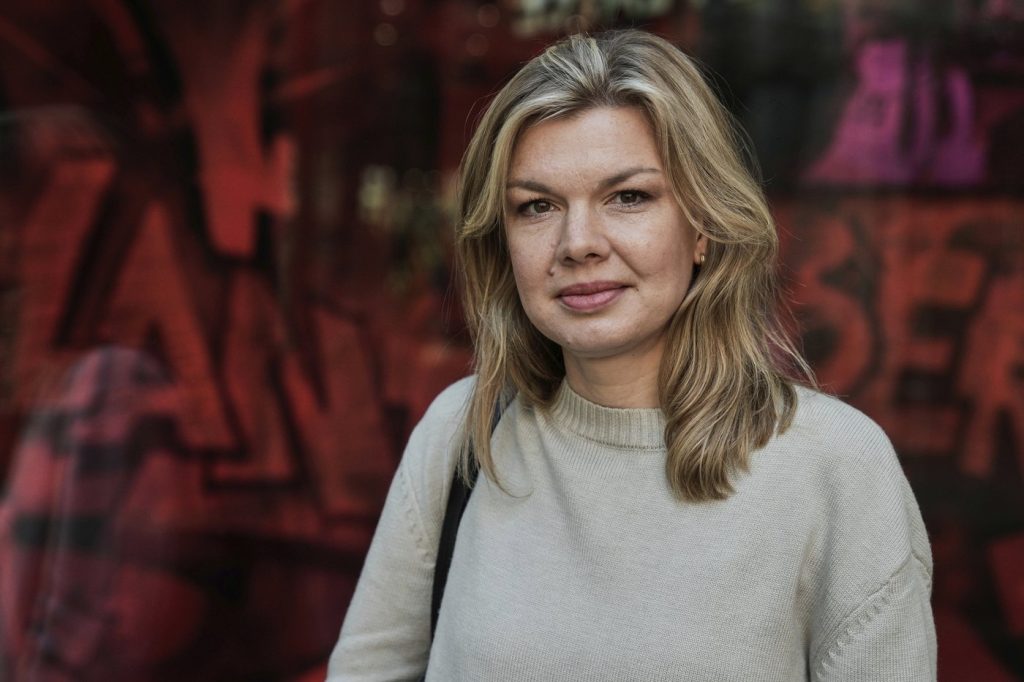TALLINN, Estonia (AP) - Journalist Ksenia Lutskina served only half of her eight-year prison sentence in Belarus after being convicted of conspiracy to overthrow the government. She was pardoned following a diagnosis of a brain tumor during her pretrial detention, which left her frequently fainting in her cell. "I was literally brought to the penal colony in a wheelchair, and I realized that journalism has really turned into a life-threatening profession in Belarus," she conveyed to The Associated Press in Vilnius, Lithuania, where she now resides.
Lutskina is among dozens of journalists imprisoned in Belarus, where conditions are dire, with reports of beatings, inadequate medical care, and restrictions on contact with lawyers or families, as noted by activists and former inmates. She compared the current prison conditions to those of the Soviet era. According to Reporters Without Borders, Belarus is recognized as Europe's leading jailer of journalists, with at least 40 individuals serving long prison sentences, as reported by the Belarusian Association of Journalists.
In 2020, Lutskina resigned from her position at Belarus' state broadcaster amidst mass protests sparked by an election widely regarded as fraudulent that secured authoritarian President Alexander Lukashenko's hold on power. After attempting to establish an alternative TV channel aimed at fact-checking government claims, she was arrested, tried, and subsequently convicted. While many journalists fled Belarus, others have struggled to maintain their work due to reduced funding after U.S. foreign aid was cut during the Trump administration.
Andrei Bastunets, the chair of the Belarusian Association of Journalists, explained that journalists face repression not only domestically but also due to the abrupt withdrawal of U.S. aid, which has jeopardized the survival of numerous editorial offices. Following the 2020 crackdown, Lukashenko's regime arrested over 65,000 individuals, leading to allegations of police brutality and forcing opposition figures into exile or imprisonment. The leading rights group in Belarus, Viasna, identified more than 1,200 political prisoners, including Nobel Prize Peace laureate Ales Bialiatski.
Independent media outlets in Belarus have faced closures or have been outlawed, while Lukashenko frequently labels dissenters as "enemies of our state." Families of targeted journalists face intimidation, and many fearful families have requested that rights groups refrain from publicizing their cases to avoid retaliation. Monthly reports indicate fresh arrests and searches, leading to a significant portion of independent media ceasing operations in Belarus, even among those who focus on non-political content.
In December, authorities arrested the editorial staff of Intex-press, a regional publication in Baranavichy, for "assisting extremist activity." Charges of extremism are commonly employed against critically minded citizens, with engagement with independent media potentially resulting in detention. As of now, Reporters Without Borders has documented that 397 Belarusian journalists have faced what it characterizes as unjust arrests since 2020, and at least 600 have sought refuge abroad.
Exiled journalists continue to endure pressure from Belarusian authorities, which can lead to legal actions against them in absentia, property seizures, and harassment of their relatives. The organization has filed a lawsuit with the International Criminal Court, accusing Belarusian authorities of crimes against humanity based on torture, imprisonment, and persecution of journalists.
Among the imprisoned journalists is Katsiaryna Bakhvalava, who was sentenced to eight years for treason after being arrested during the 2020 protests. Reports indicate she has faced beatings and isolation within prison, while Andrzej Poczobut, a correspondent for Gazeta Wyborcza, suffers from heart conditions under harsh imprisonment conditions. Similarly, Maryna Zolatava, once the editor of the popular news outlet Tut.by, received a 12-year sentence for charges related to incitement against national security.
Recent elections have seen Lukashenko extend his regime's rule amid accusations of corruption. Following the release of political prisoners, analysts have suggested Lukashenko’s strategy involves using these individuals as political bargaining chips to negotiate improved relations with the West. Despite the prevailing atmosphere of fear, many journalists remain committed to their craft, with some journalists, like Lutskina, actively engaging in discussions about media freedom and human rights from abroad.










